Testing Intel’s Raptor Lake CPU Microcode Fix Yields Encouraging Results
Well, the fix is in, such that it is, and we have good news for those of you rocking Intel 13th and 14th Gen Raptor Lake CPUs. The performance delta with this new microcode update is basically noise in most benchmarks. That's exactly what Intel promised when it published the new microcode, so nobody should really be surprised, but decided to prove this out for you.
Test Results With Intel's New 0x129 Microcode On Core i9-14900K
We ran our Core i9-14900K with Intel's Extreme settings through a whole fresh suite of benchmarks, and then did the same after applying the latest BIOS and microcode update, version 0x129. This is the update that adjusts voltage behavior, including capping VID at 1.55 volts. What does this do to performance? Let's take a look...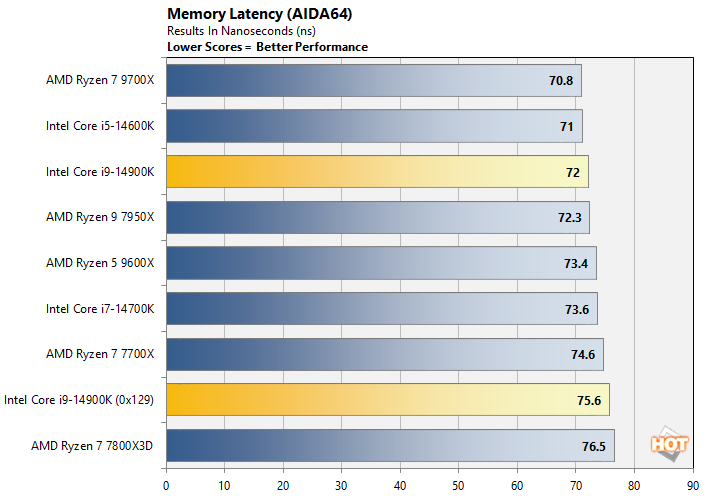
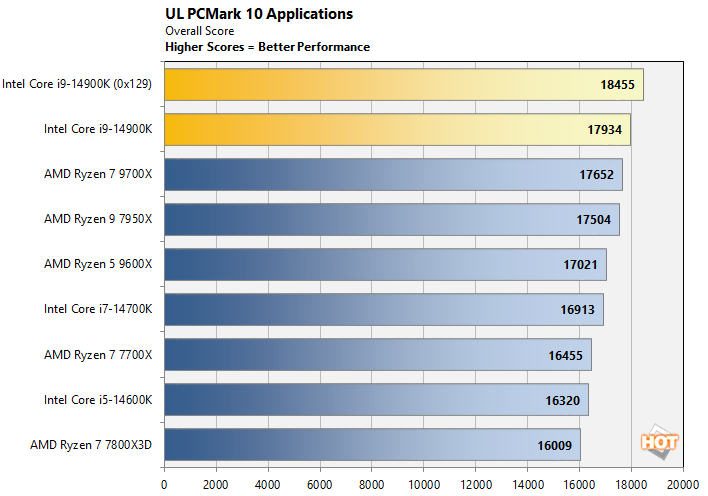
Next up we ran PCMark 10's Applications benchmark, which is a real-world test using Microsoft Office and Edge to check performance in day-to-day usage. And look at that: the chip with the updated microcode actually comes out a bit ahead of the original recipe. This could be due to better clock management thanks to lower voltage.
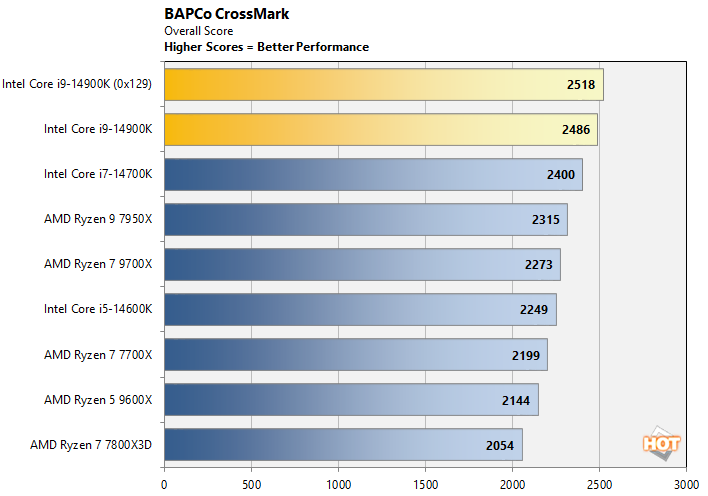
In BAPCo CrossMark, we see the same result, although the difference here is within run-to-run variance and probably isn't indicative of anything in particular. However, the main difference in the individual scores was in the Responsiveness test, where the chip with the new microcode scored consistently higher than the old microcode, lending credence to the "better clock management" theory.
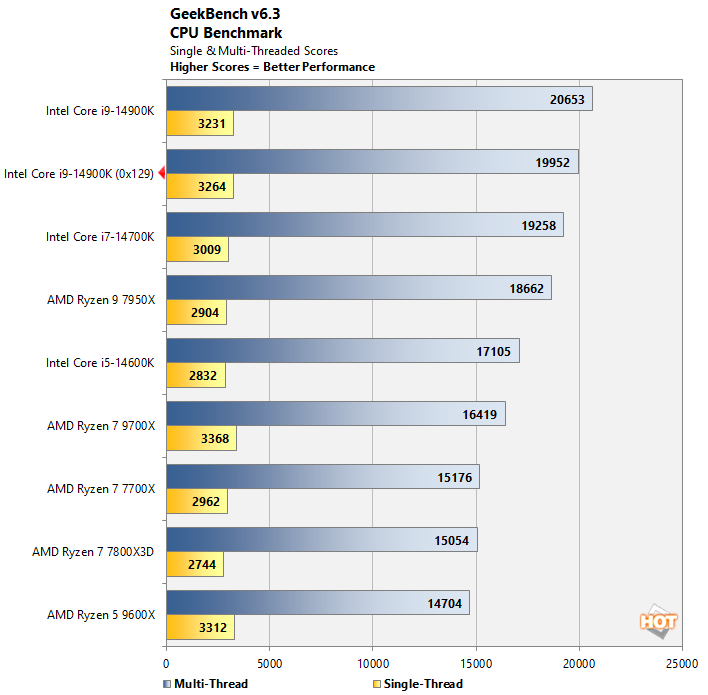
In Geekbench, we do see a performance regression in the multi-core test, but the 0x129 microcode actually improved performance in the single-core benchmark. Geekbench isn't particularly repeatable on the best of days, though, so we're not going to put too much stock into these results until we have more data.
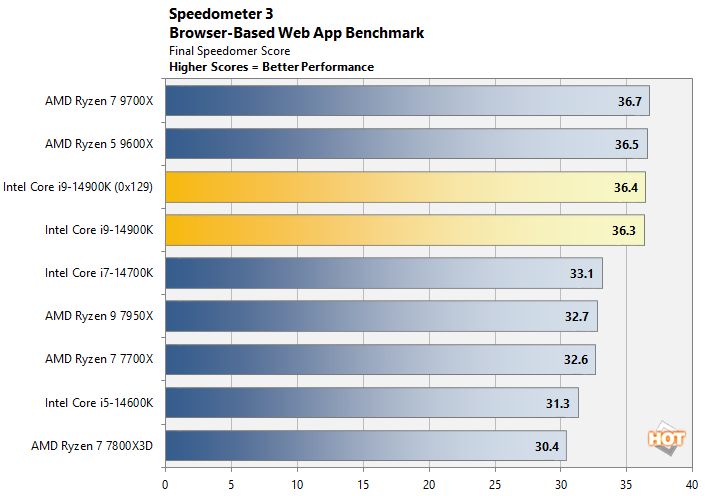
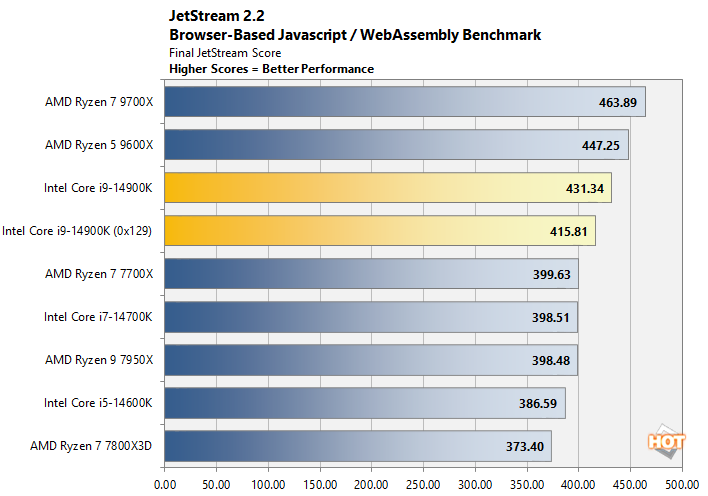
In the browser benchmarks, we see very little change, with Speedometer being well within run-to-run variance, while Jetstream does take a slight hit to performance. Even at that, it's still much faster than the 14700K or the Ryzen 9 7950X, so probably nothing to worry about, really.
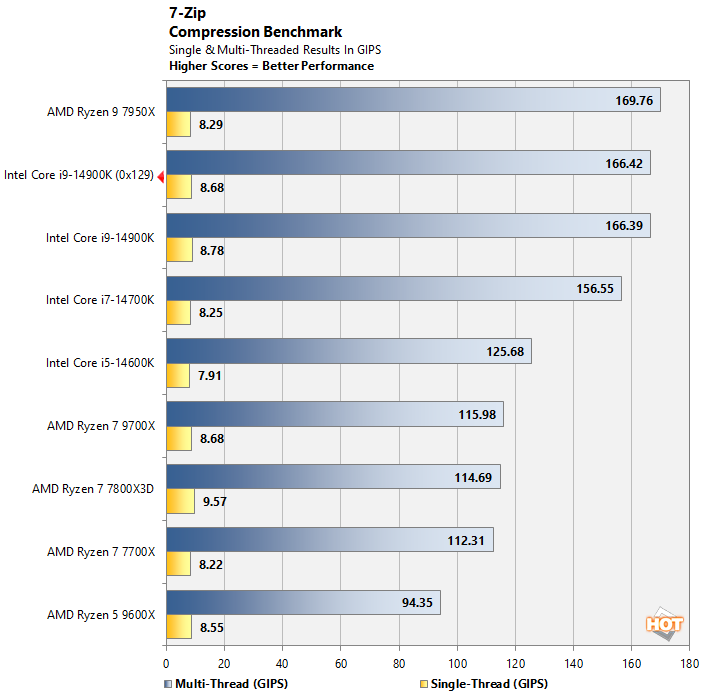
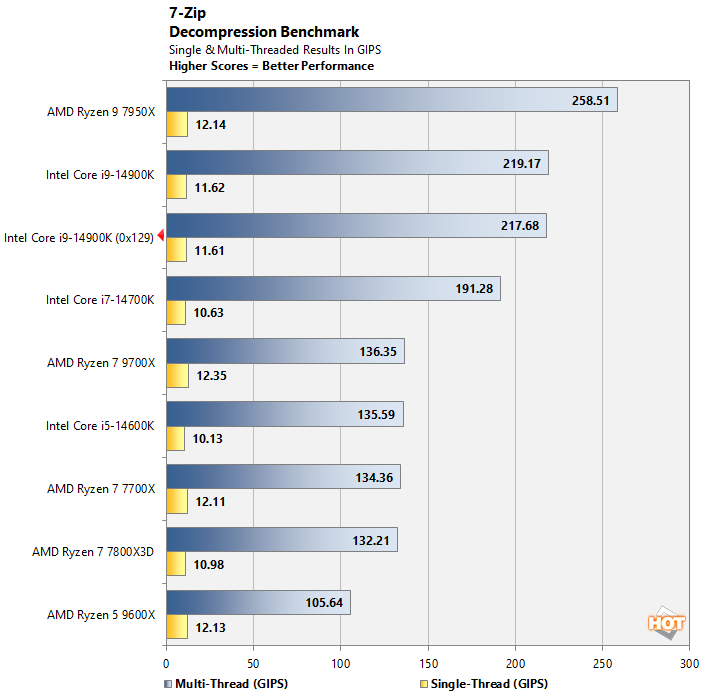
In the 7-Zip benchmarks, we again see a result within run-to-run variance, but this time we see the differences reversed from before: the older microcode gave us better single-core performance, while the newer microcode did better in multi-core. That's why we say the difference is basically noise.
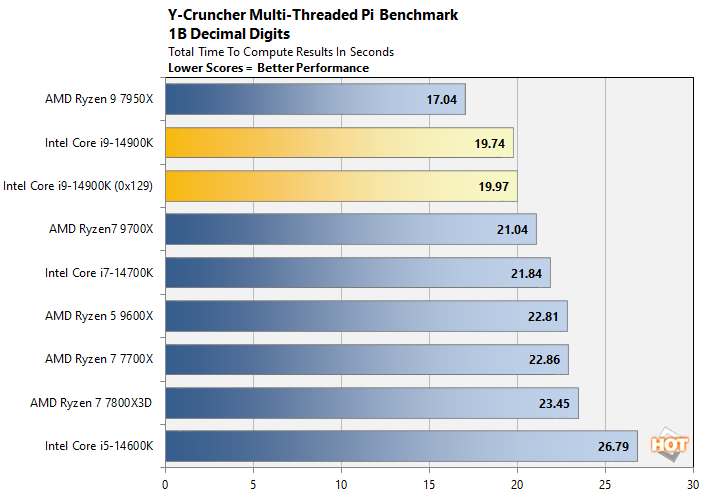
In the idiosyncratic Y-Cruncher test, we did see the new microcode slightly fall behind the older one, but only just so, and it certainly doesn't change this Intel CPU's position in the rankings. Y-Cruncher is well known for its consistency, but the difference here is so small it is basically nothing.
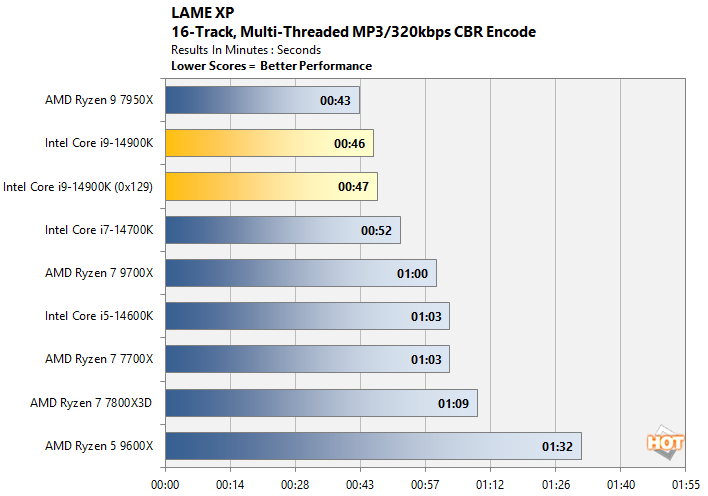
In a 16-threaded LAME MP3 encoding test, we saw basically the same thing. Multi-core performance might be very slightly degraded by the new microcode, but the difference is infinitesimal.
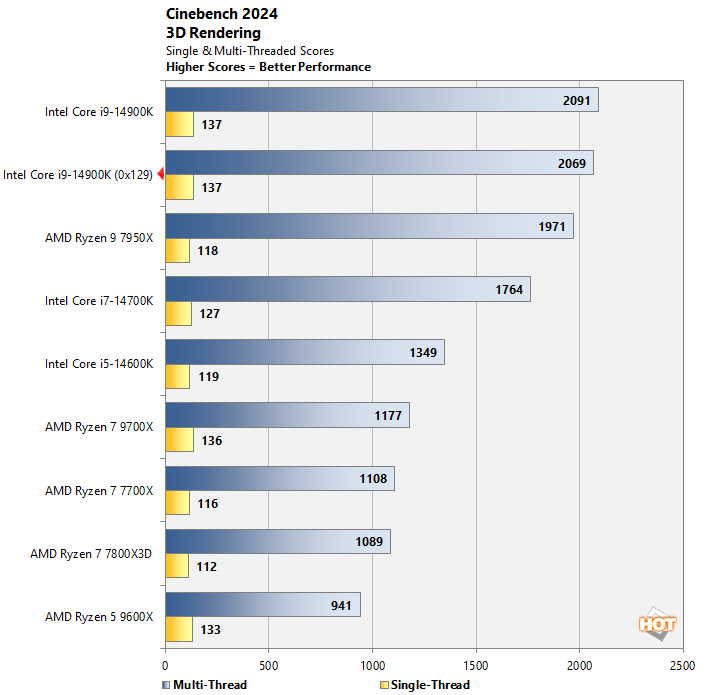
Once again, in Cinebench, we see the same story. The new firmware might slightly drop your multi-threaded Cinebench score, but it's still beating everything else on the chart. (We'll see what happens when AMD's Ryzen 9 9950X hits!)
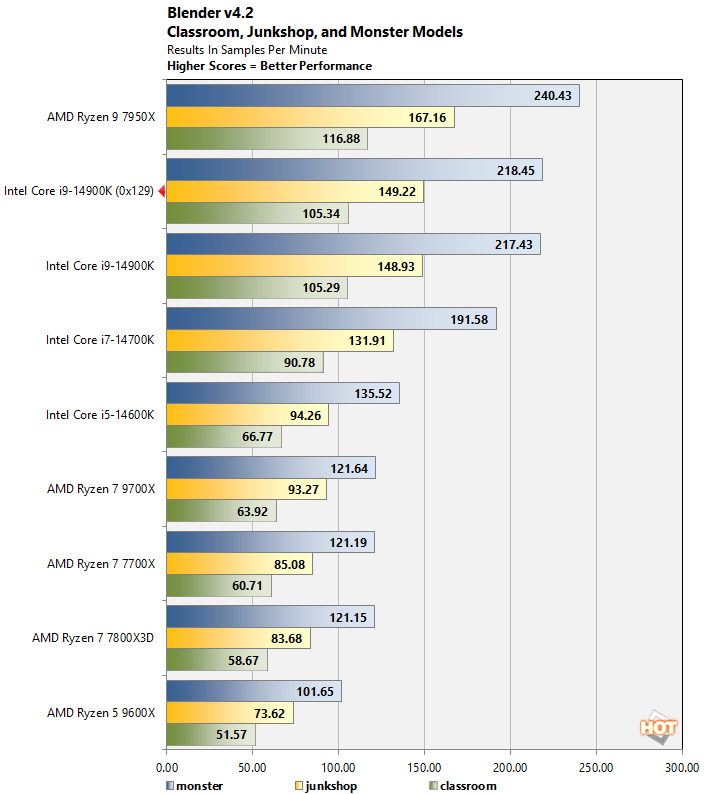
Blender was one of the applications that Intel called out specifically as seeing a performance difference within run to run variation, and indeed, we see exactly that. Nothing here is particularly repeatable or notable, so let's move on.
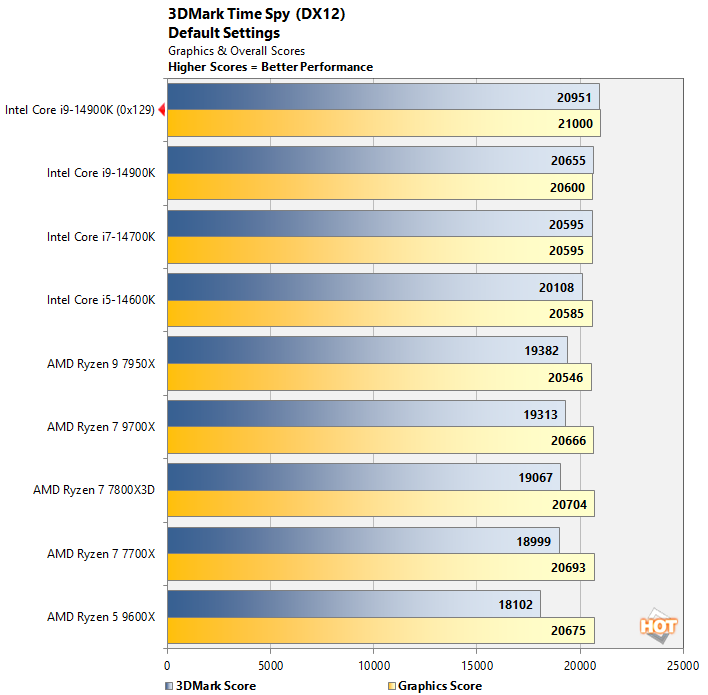
In 3DMark Time Spy, we actually saw the highest framerates in the game tests that we've ever seen using the Core i9-14900K with the new microcode. Suffice to say that gaming performance is probably not going to be affected, and if it is, it might actually improve.
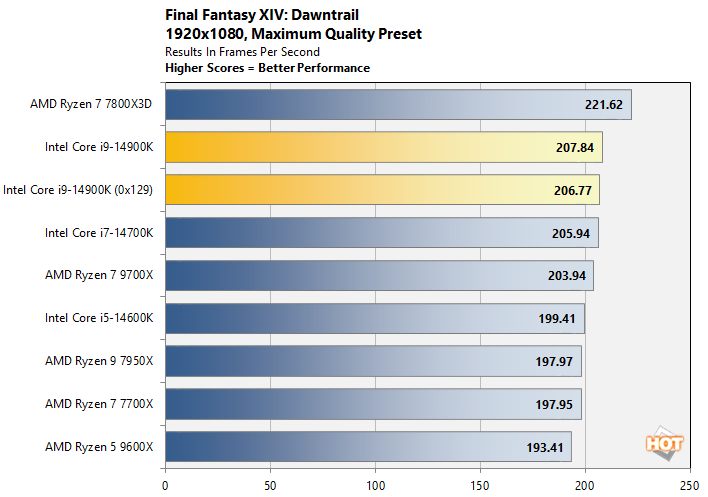
We also tested Final Fantasy XIV's Dawntrail benchmark and saw a 1 FPS difference in the two chips. Of course, considering that we're talking about over 200 FPS in a relatively leisurely MMORPG, this probably wouldn't be notable even if it were repeatable.
Investigating Power Consumption With Intel's 0x129 Raptor Lake Microcode
Lastly, we have total system power consumption. Unfortunately for Intel, nothing has really changed here. While the Core i9-14900K is pretty much the fastest CPU around for a majority of tasks, the power consumption, especially compared to the Ryzen 7 9700X and the Ryzen 7 7800X3D, is pretty out of hand. Here's hoping Intel's Arrow Lake parts can get that under control sooner than later.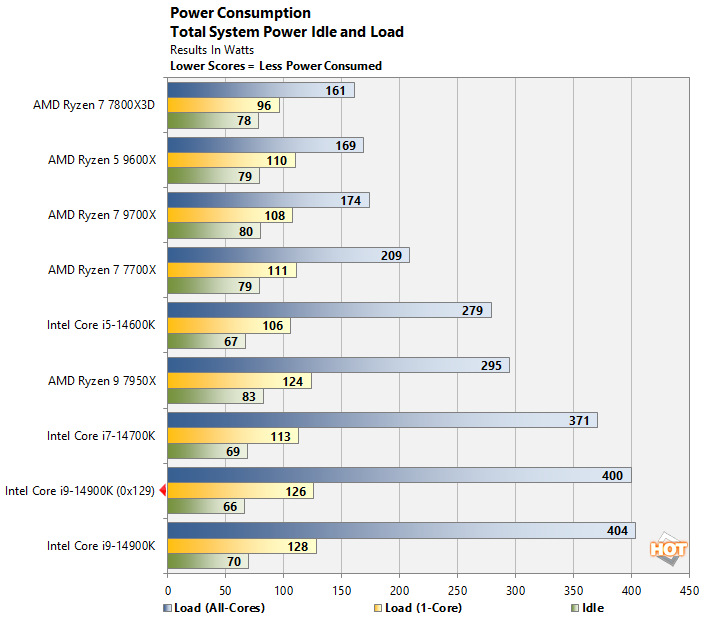
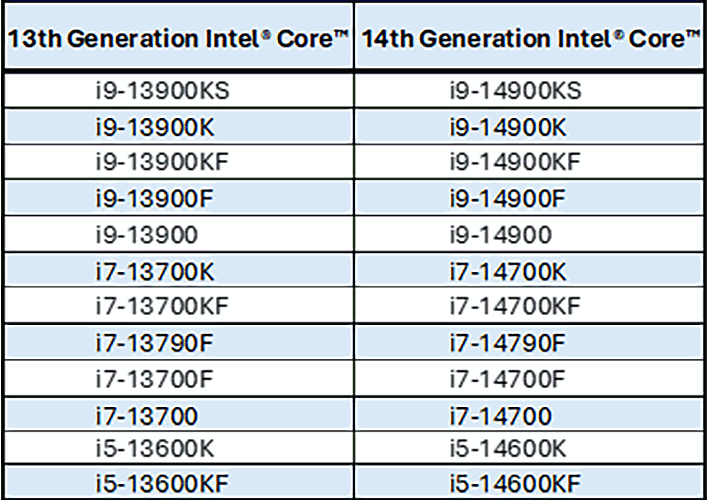
To date, our chip doesn't appear to be affected by the problem in general; we haven't noticed any stability problems at any point, but hopefully this new update will prevent that from happening. That is the point of this patch, after all—to prevent processors from degrading due to the excessive voltage.
Indeed, if your Raptor Lake processor is already exhibiting stability problems, you might want to go ahead and RMA it. Intel says that it will take care of all customers who are affected by this problem within the warranty period, which continues until at least September 2027 for 13th-gen parts and ends no earlier than October 2028 for 14th-gen parts. Let us know how you're making out with your Intel chip, in the comments below.


